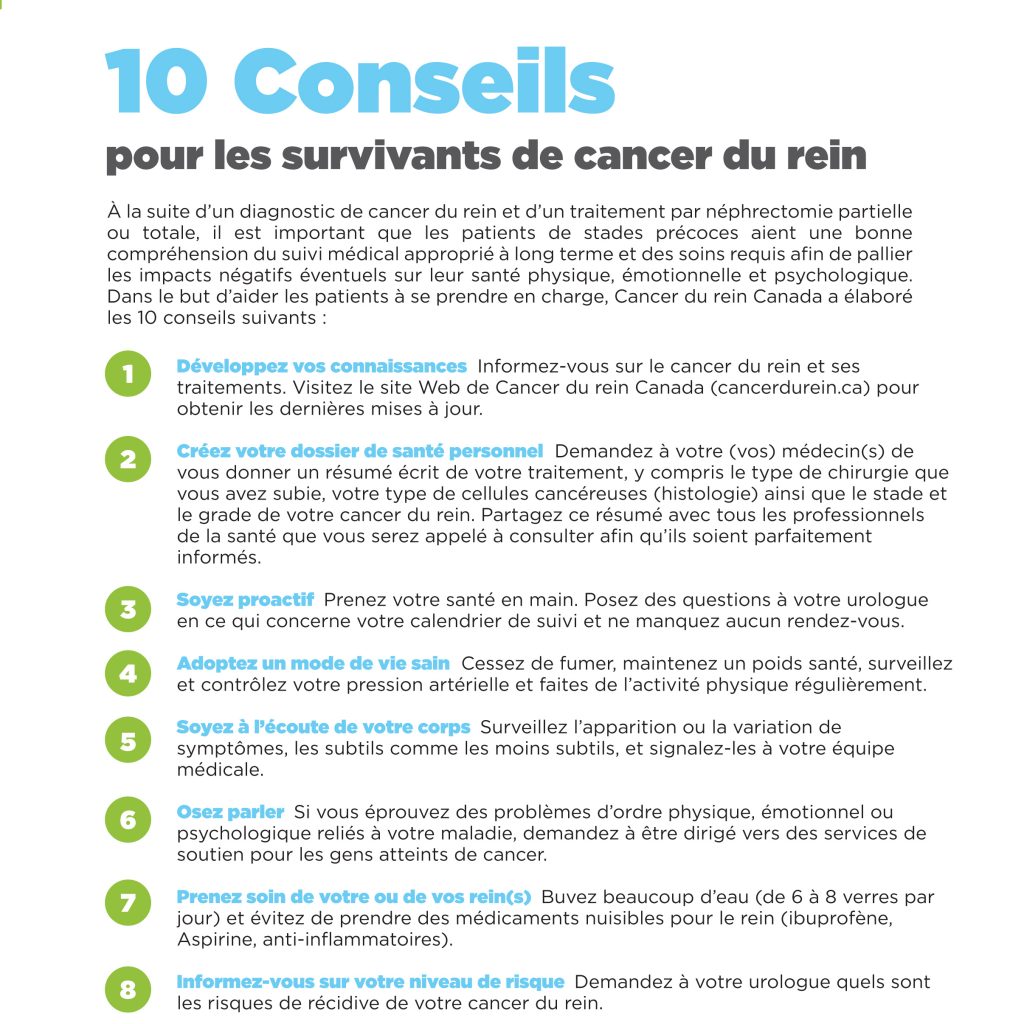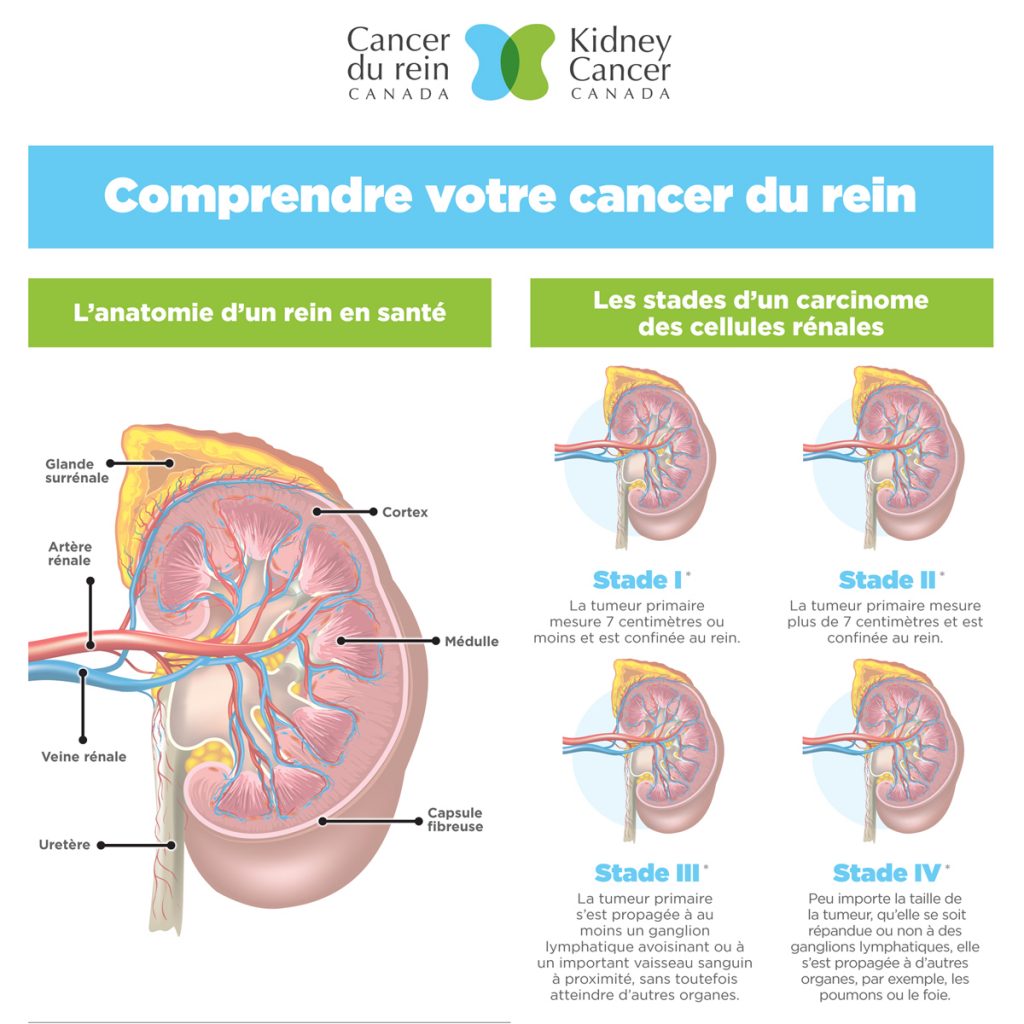Am I a candidate for ablation techniques?
Ablation techniques destroy kidney tumours while preserving normal kidney tissue surrounding the tumour. These techniques include both cryoablation and radiofrequency ablation:
- Cryoablation is a procedure where tissue is frozen to destroy abnormal cells with a special instrument that contains liquid nitrogen or liquid carbon dioxide. A kidney tumour can be treated by positioning of the instrument laparoscopically or with x-ray guidance.
- Radiofrequency ablation is the use of radio waves to heat and destroy a tumour. The radio waves travel through electrodes (small devices that carry electricity). Radiofrequency ablation may be performed laparoscopically, or with guidance of ultrasound or x-ray.
Ablation techniques can be performed for tumours less than or equal to 4 centimetres.
The joint decision between you and your urologist to perform an ablation technique considers several factors and always includes an analysis of the benefits versus the risks to you. These factors include:
-
- The size and location of the tumour
- The presence of tumours in both kidneys
- Whether you have only one functioning kidney
- Whether you have other diseases (co-morbities) that may affect your kidney function, now or in the future.
- Whether you have other diseases that may affect your ability to tolerate a surgical procedure.
Ablation techniques are probably best reserved for patients who are not ideal candidates for surgery due to other medical conditions. You may wish to discover other options with your urologist such as SBRT
HELPFUL TIP:
Ask your urologist or radiologist to fill out and give you a copy of the Kidney Cancer Canada “Understanding Your Kidney Cancer” sheet. Print one and take it with you to your appointment. If your doctor doesn’t have the sheet, they can order free copies.
What size is my kidney tumour?
Is my tumour in a location in the kidney that is suitable for an ablation technique?
Tumours located in the upper or lower pole of the kidney or are in a peripheral location of the kidney are most suited to treatment by ablation. If the tumour is located near the collecting system of the kidney there is a risk of damage to the kidney during surgery. The best result for this procedure is obtained when there are no nearby blood vessels.
Do I have other medical conditions that threaten my long-‐term kidney function?
It is important to preserve the function of your kidneys if you have any medical condition that can threaten your future kidney function. Examples of these conditions include diabetes, high blood pressure, kidney stone disease, and chronic kidney disease.
What is my urologist’s/radiologist’s experience with the ablation technique?
Ablation techniques are best performed by a urologist/radiologist with experience in these procedures. If they are not comfortable with the procedure, ask for a referral to another institution for a second opinion.
Do I have tumours present in both of my kidneys?
Tumours present in both of your kidneys (either at the same time or at subsequent times) is a good example of a time to consider ablation techniques for one or all the kidney tumours.
Do I have only one functioning kidney?
If you only have one kidney ablation should be a considered an option otherwise there is a strong possibility you will need dialysis to perform the function of your kidneys.
Do I have multiple tumours in my kidneys?
Having multiple tumours in the kidneys may indicate a hereditary form of kidney cancer. We recommend you speak with you doctor about genetic testing.
Does my own diagnosis or a family history suggest a genetic predisposition to kidney cancer?
If your doctor suspects that you have a genetic tendency for kidney cancer you may have other tumour(s) in the future. In these cases, you may wish to consider ablation techniques as one option to conserve as much kidney function as possible.
Do I have other medical conditions that would make an ablation procedure risky for me?
If you have other medical conditions that would make a ablation risk for you, your doctor may consider the use of another technique for your treatment.
Note: Ablation does not necessarily preclude you from subsequent options of surgery or SBRT, but you should discuss the potential of subsequent treatment before you undertake this option.



























































